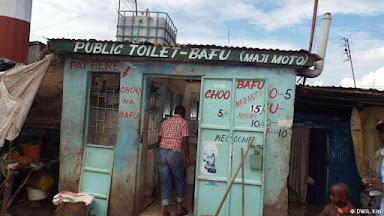No Climate Justice without Gender Justice
No Climate Justice without Gender Justice
As my blogging comes to a close, I realise that the overarching reason for many issues that women in Africa face are exacerbated by climate change. Africa as a whole is expected to warm by 3-4 degrees Celsius by the end of the 21st century. Climate impacts are becoming increasingly worse and more difficult to deal with and women and girls continue to bear the brunt. Climate related issues expose and worsen the vulnerabilities that women already face.
This is why I think it is fair to say that climate injustice is gendered injustice. Because it is women who are most affected by it. And it is also women who have historically and politically and culturally been most marginalised and exploited.
 |
| Climate justice is gender justice |
Knowledge and gender mainstreaming
A study from the coastal regions of Ilaje, Nigeria found that impacts of climate change are felt unequally between men and women due to women's marginalisation from economic and political power imbalances which reduces the effectiveness of women to respond to climate crises. This marginalisation is damaging because these women are custodians of local knowledge that is crucial in mitigating the effects of climate change.
I think that this IUCN summary perfectly captures the importance of women and their roles and knowledge:
"There is a circular and self-reinforcing relationship between the constrained roles of women in governance and the under-valuation of their roles in production and resource use, the ensuing under-appreciation of their knowledge about the resource, their constrained rights to access resources, which limits their economic opportunities as well as their representation of communities’ economic interests, thus perpetuating an under-recognition of their roles in productive activities."
Gender mainstreaming must ensue in the narratives of policy and legislation in order to address gender inequalities and climate justice. It is of upmost importance that discourse on climate change does not deepen these inequalities by increasing responsibilities of women, without them reaping the benefits of these increases. Furthermore gender mainstreaming can be most successful if implemented in national and international goals, which are achievable and context specific. Governments must do more in order to achieve these goals, as without them there is no justice and no development.



Hi Wiktoria! I really enjoyed reading this post and in fact wrote a piece about the same topic here - https://watergenderafrica.blogspot.com/2021/10/cop26-climate-justice-gender-justice.html. I really enjoyed how you wrote about the problem very succinctly explaining the relationship between climate justice and gender justice. I will make sure to read the study from Nigeria as I am super interested in understanding the effects of women as custodians of knowledge. I was wondering if you have seen any good examples of gender mainstreaming?
ReplyDeleteA big example of gender mainstreaming would be the inclusion of gender justice in the SDGs. These goals are set to most countries to achieve and globally it is one that is probably the best example. The extent to which this is applied and enforced is down to individual nation states, yet this is a big step at an international level
Delete